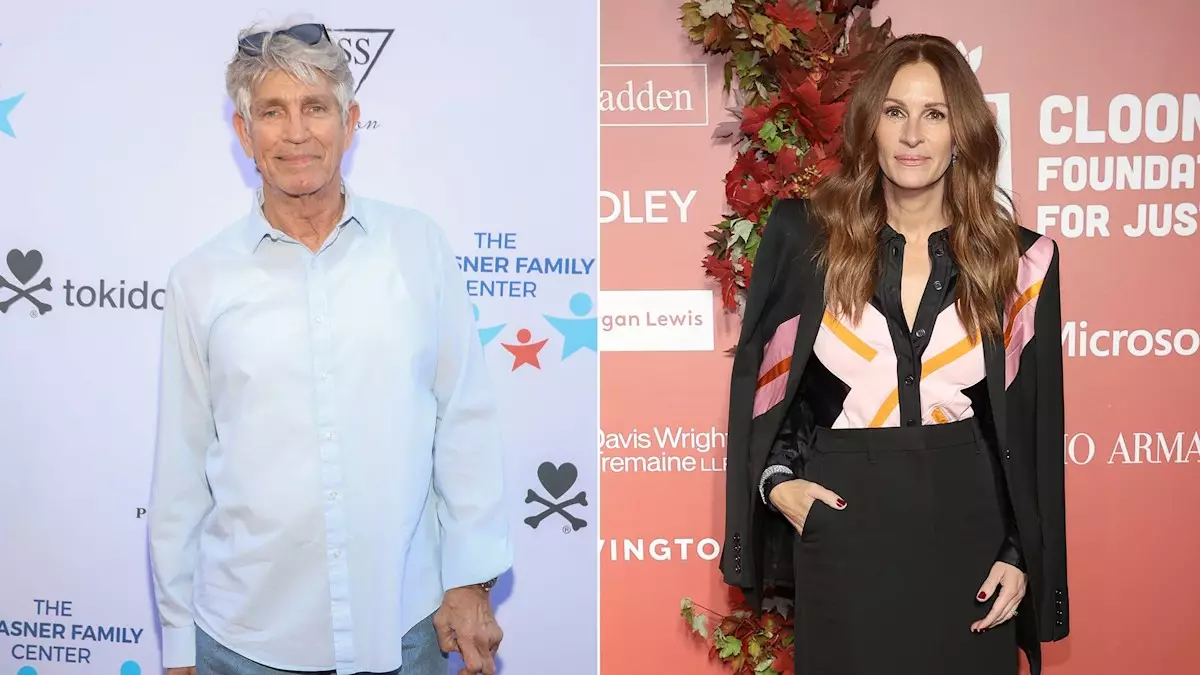In the glamorous yet often tumultuous world of Hollywood, family dynamics can become complicated, especially when fame and success enter the picture. Recently, Eric Roberts, an accomplished actor in his own right and the older brother of the iconic Julia Roberts, opened up about his tumultuous relationship with his sister. Their past estrangement and recent reconciliation tell a story that resonates beyond just the glittering façade of Tinseltown; it is a narrative steeped in regret, acknowledgment, and the quest for forgiveness.
Eric Roberts’s public apology marks a significant moment in his memoir, “Runaway Train: Or, the Story of My Life So Far.” In it, he reflects on how his words, particularly those regarding juggling the roles of brother and burgeoning celebrity, had previously cast a shadow over their relationship. This revelation serves as not only an introspection of his past behavior but also illustrates the impact of their family’s struggles during their formative years.
A pivotal moment in Eric’s memoir involves his admission of having claimed undue credit for Julia’s career success. During a 2018 interview with Vanity Fair, he had boasted, “If it wasn’t for me, there would be no Julia Roberts,” a statement that Eric now labels as both “asinine” and damaging. This assertion originally fueled rifts between the siblings and highlighted a toxic blend of pride and misunderstanding. Eric’s realization of his misguided ego not only serves as a catalyst for his public apology but also illuminates the fragility of familial bonds in the face of personal ambition.
The fact that Eric recognized this past misstep indicates a level of growth and maturity that is essential for any reconciliation. It is here that he expresses genuine regret, suggesting that his remarks were not merely flippant, but rather symptomatic of a deeper issue within their sibling relationship—a painful acknowledgment of self-centered behavior at a time when his sisters needed support and validation.
In the memoir, Eric further explores the profound ramifications of a dysfunctional family dynamic. He candidly admits that his decision to falsely announce their mother’s death caused emotional turmoil within their family unit—an act that he describes as the “great undoing” of his relationships with Julia and their other sister, Lisa. This candid admission sheds light on deeply rooted familial grievances and the challenge of overcoming them. For siblings caught in a storm of fame and personal strife, the lines of family betrayal can easily become blurred.
His retrospective look at their shared upbringing reveals a man grappling with his emotions, still carrying the weight of past grievances related to their mother’s divorce from their father. This familial backdrop provides context to Eric’s struggles with addiction, which complicated his ability to maintain healthy relationships, including the one with Julia whom he admits he adored but ultimately strained due to his behavior.
It wasn’t until 2004, following the birth of Julia’s twins, that the siblings began to mend their relationship. This poignant turning point symbolizes not just the joys of new beginnings within a family, but also the underlying hope that existing wounds can heal over time. The process of revisiting their bond has allowed them to carve out a mutual understanding guided by love and respect rather than competition and resentment.
As Eric articulates their current relationship, he emphasizes the importance of maintaining boundaries, allowing each sibling to flourish in their respective careers while remaining a source of support for one another. This reflection indicates a newfound emotional intelligence that contrasts sharply with the chaos of their younger years.
Eric Roberts’ journey from estrangement to reconciliation with his sister Julia is not simply a Hollywood tale; it serves as an exploration of the complexities of familial relationships, especially within the context of fame. His recent apology resonates as a heartfelt acknowledgment of past mistakes while underscoring the significance of humility and empathy in healing wounds. As they navigate the pressures of the entertainment industry, the Roberts siblings remind us that sincerity and love can pave the way for redemption, fostering a bond that endures amidst the flashing lights of Hollywood.

Leave a Reply